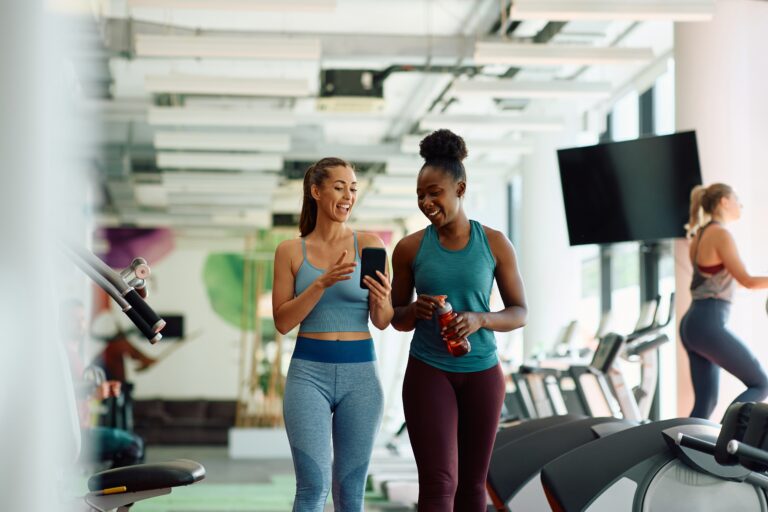Table of Contents
Imagine a student-athlete as a gymnast on a balance beam, carefully navigating a narrow space where every step counts.
Academics, athletic performance, relationships, and societal pressures are the complex routines the gymnast must execute with perfect precision. Now imagine the student’s mental health as the crucial core of their stability. A single misstep in maintaining their balance can send them tumbling.
In an effort to keep the gymnast safe, it is critical to provide a mat under the beam – a foundation of mental health resources that cushions every challenge and ensures a safe return to the beam.
Personal perspective
As a freshman Division I gymnast at the University of California, Berkeley, I was living my dream of competing at the collegiate level. In just seconds, my gymnastics career came crashing down – literally – during a dismount off bars. It’s a skill I had performed thousands of times before, but this time, something unexpected happened – I landed straight on my head, breaking T3 and T5 vertebrae in my spine as well as tearing my trapezius muscle. At just 17 years old, I was bedridden in my dorm room for 10 weeks.
Hear from VP of Care Transformation, Nassim Bickham, as she talks about her personal experience of being injured her freshman year as a student-athlete.
This ordeal was not just physically challenging; it was a mental and emotional rollercoaster. In addition to struggling with the shock of a major injury, I was only six weeks into my college experience, navigating new challenges like adjusting to a new school, team and coach while living away from my home and family. I was not prepared, or even aware of, how traumatic this injury would be on my mental health.
The reality is that my brain took much longer to heal from my injury than my body, and that impact on my mental health went unmet, leading to my retirement as a collegiate gymnast during my sophomore year.
Looking back, I can’t help but wonder how different my experience might have been if I had access to virtual health services that could have connected me with a mental health professional right from my dorm. That would have been an invaluable use of my bedridden time.
My experience served as a catalyst and inspiration to address a need that often goes unmet, by helping others with their mental health. This ultimately led me to TimelyCare where I support the development of clinical programs and our care team in changing the lives of students who struggle like I did.
As leaders in higher education and mental health, we must understand the mental health hurdles students face, the supportive role of institutional leaders, effective strategies in mental health care and the trends of reshaping how we nurture young athletes. It’s time to help student-athletes achieve not just physical and academic success, but also emotional balance on their path forward.
The mental health crisis among student-athletes: statistics and insights
The intersection of high-performance athletics and the academic environment can often be a breeding ground for overwhelming stress. Research indicates that nearly one in every four student-athletes report signs and symptoms of depression, and females were found to be more likely at risk for depression and anxiety compared to males.
High expectations, injuries and constant schedules often leave little room for self-care. Even more alarmingly, a study by Athletes for Hope found that only 10% of student-athletes experiencing mental health challenges seek professional support. Often, stigma and lack of access to proper care often prevent athletes from seeking help.
While there have been changes and improvements to support mechanisms for student mental health in higher education, there is still work to be done – especially for student-athletes – to support students’ emotional health and well-being on and off the field.
Suffering in silence: Recognizing stigma and providing resources
The number one step higher education can take is to recognize that the stigma associated with mental health is likely even more pronounced in the student-athlete population and acknowledge that it will take extra effort to break it down, particularly among marginalized communities. In the meantime, offer student-athletes support and ensure they know what resources are available to help them.
Beyond the physical resources, it’s also vital to ensure that athletes feel safe and supported using them.
A NCAA-led survey found more than 80% of head, assistant and associate coaches across all three divisions are spending more time discussing mental health with student-athletes than they did before the pandemic. Athletic directors and coaches have a unique ability to influence team culture. By building a culture of caring within the athletic community and among individual teams and teammates, students can feel more comfortable seeking support when they need it.
Take proactive measures to support the unique needs of student-athletes.
How virtual health can support student-athletes
Another important step for higher ed to support student-athlete mental health is to lean into one of their most powerful assets: motivation.
Student-athletes are among your most motivated individuals on campus. They know how to set goals and achieve them. While there may be an initial hurdle to breaking the stigma barrier, we know students want to feel better.
In many ways, Gen Z is leading the charge for change. A recent TimelyCare survey found that 73% of college students believe mental health support services would increase their likelihood of graduating.
However, finding the time to seek mental health support is yet another challenge that can complicate a student athlete’s wellness journey, as their demanding academic, athletic and travel schedules can make it nearly impossible to schedule an in-person appointment when it suits their schedule. Introducing a virtual care solution enables them to connect with a provider at their convenience, no matter their schedule or location. With a teletherapy service like TimelyCare, students can access a licensed provider wherever they happen to be.
Combating the mental health stigma within athletics takes structured, thoughtful programs. The Sun Belt Conference established a first-of-its-kind partnership with TimelyCare to expand mental health care access to student-athletes across each of the conference’s campuses, including scheduled counseling, TalkNow, peer community and self-guided resources.
Here are some best practices to begin integrating mental health initiatives:
Incorporate mental health experts into athletic departments
Create mandatory education workshops
Peer mental health programs
Peer support networks enable athletes to connect with fellow students who share their experiences. These programs reduce stigma dramatically while ensuring athletes have a trusted space to talk.
Utilize technology for accessibility
Digital solutions like TimelyCare provide self-guided journeys, check-ins, and guided content to empower students to develop healthy habits. These services are available anytime, anywhere—an ideal solution for time-strapped athletes.
Integrated wellness checks
Include mental health assessments as part of regular physical evaluations to ensure ongoing monitoring and early intervention. Pair screenings with opportunities for counseling referrals.
Engaging nutrition and fitness with mental health
Virtual emotional and mental health care, such as the services provided by TimelyCare, can also help institutions meet the NCAA’s guidelines for mental health best practices by providing accessible, confidential, and secure support for student-athletes. The guidelines emphasize the importance of providing resources and support for student-athlete mental health, including access to mental health screenings, referrals, counseling services, and ongoing care. Virtual care addresses those requirements by expanding accessibility, providing convenience, reducing stigma, connecting students to peer support services, integrating with on-campus counseling centers, and providing care for coaches and staff.
Learn how your faculty, staff, and coaches can properly support the student-athlete population on campus from VP of Care Transformation, Nassim Bickham.
Virtual care can remove barriers to mental health care, enabling student-athletes to reach their fullest potential in their academic and athletic performances. Contact TimelyCare to learn how mental and physical telehealth for your academic community can make a difference in the mental wellness of student-athletes and non-athletes alike.
This blog was last updated on February 18, 2025.






